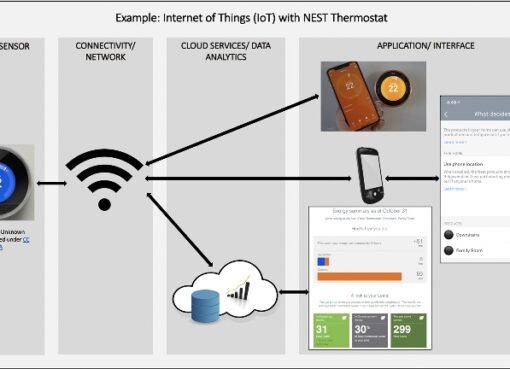How to Balance Work and AI Learning in India

Artificial Intelligence (AI) is rapidly transforming the workplace, and Indian professionals are actively embracing upskilling to stay ahead. According to LinkedIn’s latest Workplace Learning Report (2024), 94% of companies in India plan to enhance their employees’ skills. Organisations are prioritising employee upskilling, aligning learning with business goals, and fostering a culture of continuous education.
India has become one of the champions in adopting technology trends, and more than 70% of professionals go an extra mile to upskill in AI, as pointed out in the Navigating Tomorrow: Mastering Skills in a Dynamic Global Labour Market report. As AI is revolutionising industries, there is also a greater need for professionals skilled in AI. It is crucial to get the optimal balance between work and learning about AI for professional growth. By a systematic approach, experts are able to quite conveniently reconcile AI learning with their busy lives.
Six ways to balance work and AI learning
1. Set clear learning goals
Before starting your AI learning journey, define what you want to achieve. Do you want to switch careers, improve your current job performance, or gain a certification? Having a clear target will motivate you and keep you on track. Break your learning into achievable milestones. For instance, if you’re targeting an AI certification, break it into weekly sessions. Keeping goals achievable prevents you from exhausting yourself and keeps you moving steadily. Track your achievements to keep you moving and gauge how you are improving over time.
2. Create a routine schedule
Time management is important in juggling work and learning AI. Find pockets in your daily time where you can spend time on studying without affecting your performance at the workplace. Schedule specific times for AI learning, such as early mornings, lunch hours, or weekends. Avoid random learning sessions, as they can be ineffective. Stick to a consistent schedule to develop a habit. Use digital planners or AI-powered time management tools to stay organised. Prioritise learning during high-energy times of your day to maximise productivity.
3. Engage with knowledge and AI communities
The internet is a vast resource for AI knowledge. Follow leading AI websites and blogs like “Towards Data Science,” “Machine Learning Mastery India,” and OpenAI’s blog to stay updated on the latest trends. Social media platforms like LinkedIn and X (formerly Twitter) are also great for following AI influencers and industry leaders.
Getting linked to online forums enhances learning because it provides access to the expertise and such experts who can share concerns. Engage in discussions across platforms like Reddit’s r/MachineLearning, Stack Overflow, and AI-based LinkedIn groups. These platforms allow you to ask questions, share information, and gain insights from real-life applications of AI.
4. Select flexible learning platforms
As a working professional, you will have to find courses that offer flexibility to balance work and studies. Therefore, you must look for online courses that allow self-paced learning, allowing you to study at your convenience. Sites like Coursera, Udemy, EdX, and Udacity offer AI courses specialised for corporate professionals. Some of them have recorded lectures so you can study at your convenience. Weekend workshops and interactive AI boot camps are also great options. Choosing courses with lifetime access to content enables you to refer to concepts as and when needed. Flexibility in study enables you to adopt AI learning without having to sacrifice your work schedule.
5. Keep up to date with research and try out AI tools
Being up-to-date with research on AI is a revelatory element that reminds an individual of just how much work has gone into AI. Such online libraries as arXiv, Google Scholar, and IEEE Xplore contain the latest research papers in AI that post the latest developments in AI. Reading AI research can help you think and innovate within your respective domain. Additionally, learning through doing projects enhances comprehension. Try experimenting with AI platforms such as TensorFlow, PyTorch, and Jupyter Notebooks to develop small projects. Practical training anchors learning and enriches your portfolio, demonstrating to future employers your AI abilities.
6. Apply AI ideas to your current occupation
Putting what you have learned into practice will make you ready for the real world and also help in confirming your competence. Look for areas in your work where you can enhance productivity using AI. If you are in finance, find out how AI is used to automate fraud detection. If you are in marketing, see how customer analytics using AI work. Implementing AI at the workplace not only increases your ability but also your organisation. Issue a word to your employer on integrating AI tools into existing workflows. This method enables you to experience hands-on learning while at the same time furthering your professional career.
7. Use AI tools to manage your time
Ironically, AI itself can assist you in managing AI learning. AI-driven productivity tools such as Google Calendar, Notion, and Trello help in planning study timetables. Virtual assistants such as ChatGPT can summarise complex AI concepts, saving time on research. AI-based note-taking apps convert spoken words into text, allowing you to capture key ideas on the go. Automating repetitive tasks at work using AI tools frees up time for studying. Using AI to optimise your workflow ensures you stay efficient in both learning and job responsibilities.
Summing it up
Be it financial institutions like NBFCs or e-retail spaces like online marketplaces, learning AI has become an essential requirement for jobs in any sector. But, as a working professional, it is usually difficult to find a method of balancing AI learning and working. This requires planning and discipline. By setting clear goals, structuring your calendar, and using AI-based tools, professionals can fit learning into their everyday routines. Time and effort put into upskilling not only improve career prospects but also prepare professionals for the future workplace.



